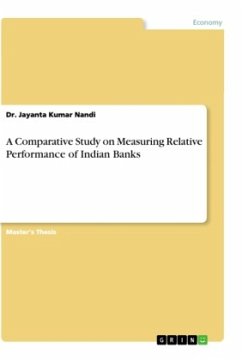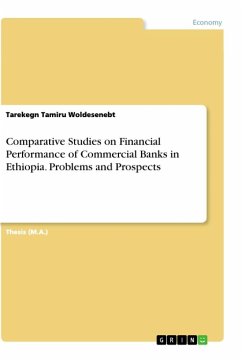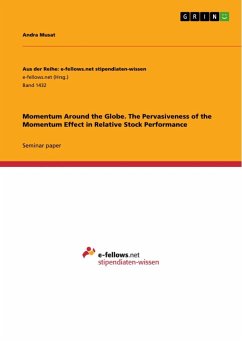Master's Thesis from the year 2009 in the subject Business economics - Banking, Stock Exchanges, Insurance, Accounting, grade: 9.8, University of Burdwan, language: English, abstract: The present study seeks to examine the trends in the financial performances of 15 banking companies, major players in the Indian money market, during the period 1996-97 to 2006-07. In this study 8 major public sector banks and 7 private sector banks in India have been selected. The performances of public sector banks have become more market driven with growing emphasis placed on profitability. Though there is a phenomenal development in both public and private sector banks in India after reforms yet the private sector is still lagging behind comparatively in this study.With the nationalization of the most of the major commercial banks in 1969, restrictions on entry and expansion of private and foreign banks were gradually increased. The Reserve Bank of India (RBI) also began enforcing uniform interest rates, spreads and service changes among nationalized banks. The success of our giant five year plan is dependent, among other things on the smooth and satisfactory performance of the role by banking industry of our country. Banks thus pay special attention in financing business of innovation for providing cheap and adequate credit. And this is done by different private and public sector banks in money market in our country.Since 1992-93, the structure of the Indian banking system has undergone significant changes in terms of scope, opportunities and operational buoyancy. The commercial banks have been facing and increasing degree of competition in the intermediation process from term lending institutions, non-banking intermediaries, chit funds and the capital market. Besides, new banking services like ATM and internet banking have been emerged due to the advancement of computers and information technology.
Hinweis: Dieser Artikel kann nur an eine deutsche Lieferadresse ausgeliefert werden.
Hinweis: Dieser Artikel kann nur an eine deutsche Lieferadresse ausgeliefert werden.








